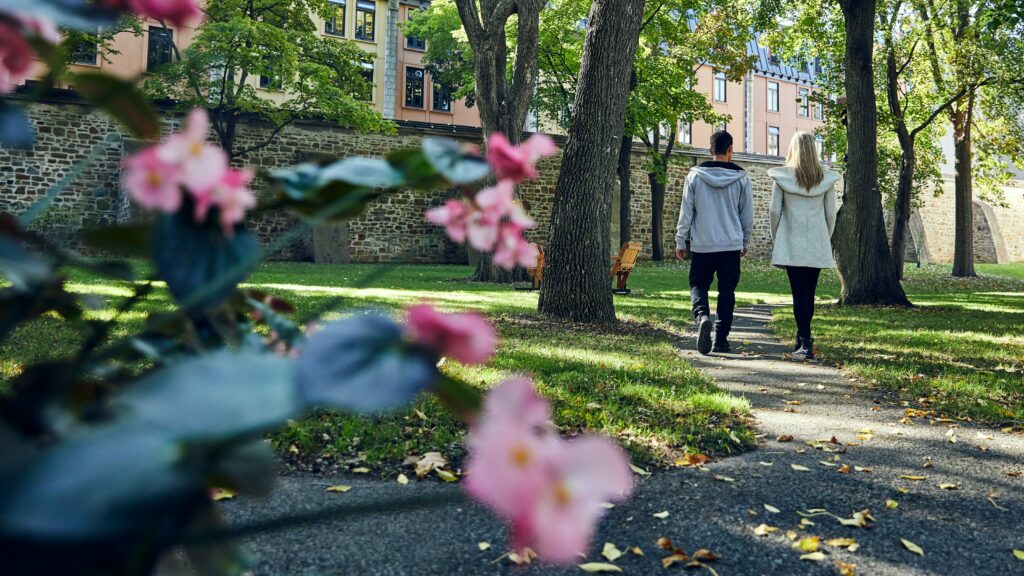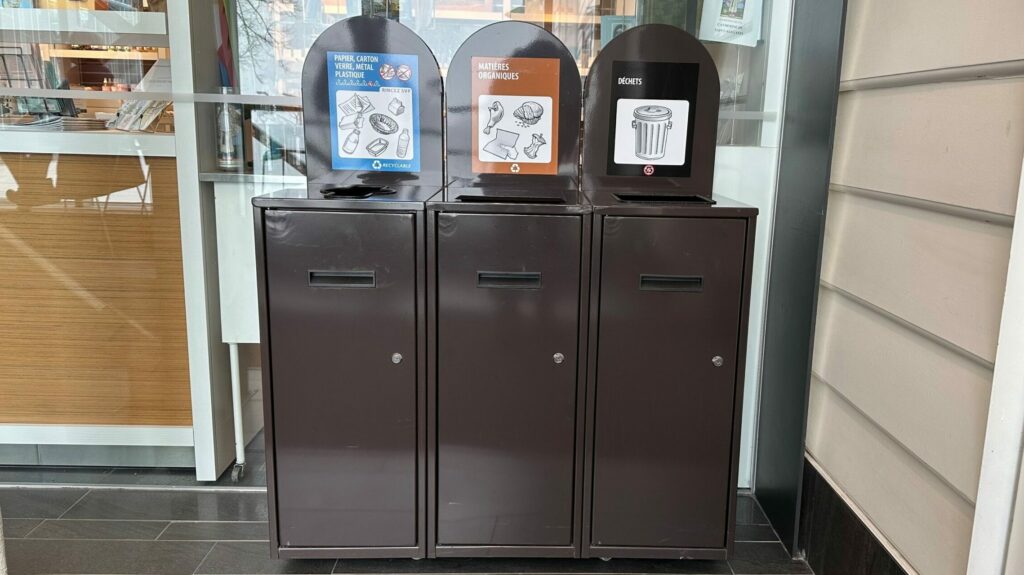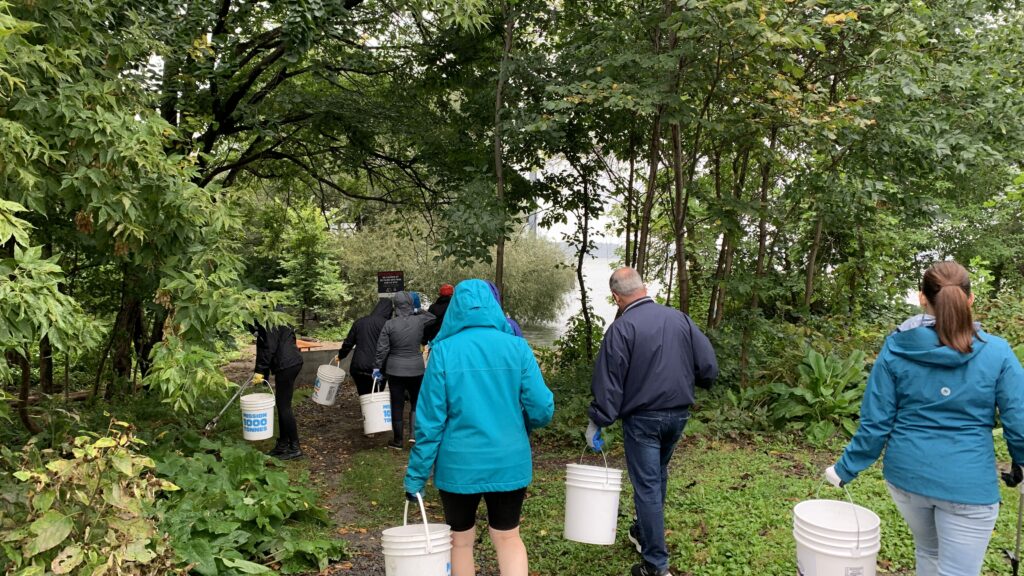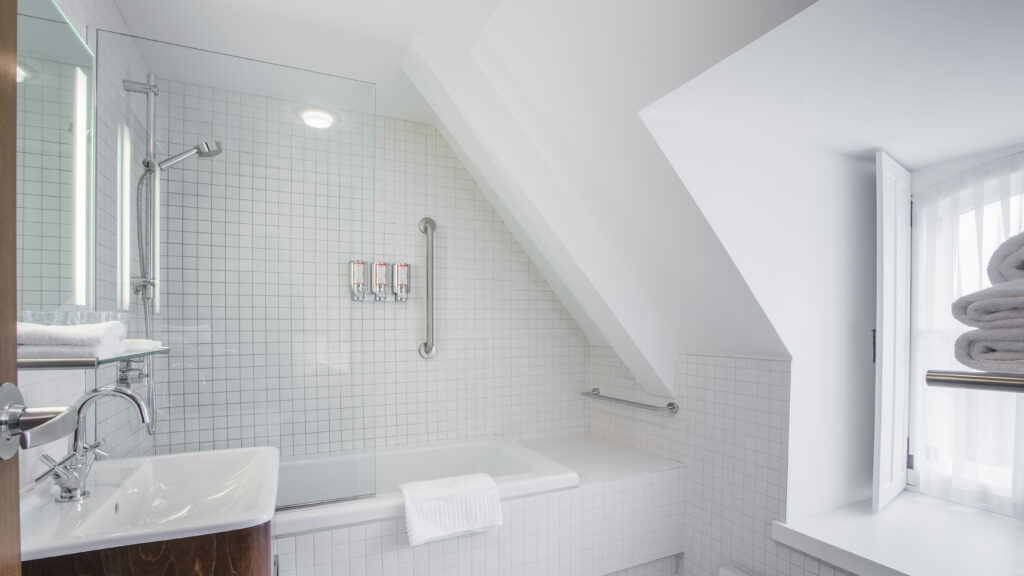Sustainable development: Le Monastère’s actions and ideas for your everyday life
Did you know that Le Monastère des Augustines has been committed to sustainable development since the very beginning of the project’s restoration? In this article, you can find out about three key sustainable development priorities currently being implemented at Le Monastère, and ideas for your everyday life, for taking care of our planet together!

One component of our organization’s ecological management plan is to incorporate sustainable development in everything we do, which goes hand in hand with preserving tangible heritage. In fact, more than 70% of the original materials were reused in this project. In 2017, we also received a 5 Green Key rating (through the Green Key Eco-Rating Program), demonstrating our commitment to maintaining high standards of environmental and social responsibility.
Waste management
Le Monastère des Augustines created a comprehensive waste management strategy. From sourcing to sorting and consumption, our team set this plan in motion by taking concrete steps to encourage environmentally responsible behaviour.
For example, if you want a meal to go, you’ll find that our containers are mostly compostable— convenient because we provide three different bins: one each for recyclables, ordinary waste and compostable materials. We don’t just collect food scraps in the last bin, but also various types of compostable containers and coffee cups.
Even though we found ways to recycle or compost some of Le Monastère’s waste, we still encourage our customers and employees to reduce waste at the source. For example, you can bring your own reusable cup or water bottle to drink on the premises. Being part of the RemplisVert network, our water fountains are open to everyone.

Everyday actions you can implement
First, we recommend using reusable containers for your drinks. Did you know that most coffee shops offer discounts when you bring your own cup? That’s one more reason to consider bringing one on your next outing!
You could also get into the habit of buying certain foods or products at bulk food stores. Contrary to popular belief, bulk stores carry many basic ingredients at a similar price and quality to those in supermarkets. Besides, you can buy only the amount you need, which significantly reduces food waste.
That said, it can sometimes be hard to avoid generating food waste since we often end up with extra food or inedible leftovers. For the first scenario, we recommend visiting your community fridge and dropping off your extra food. As for the second, more and more Québec cities have implemented compost collection systems. Québec City in particular has a food waste collection system since 2022. In short, get informed to see your options!
The importance of community
At Le Monastère, we strongly believe in the power of social and community collaboration, which starts with our choice of suppliers. In fact, most of the products sold in our boutique come from Québec and Canadian companies. Our hotel rooms and shared bathrooms even contain hygiene products from Oneka, an environmentally responsible company in the Eastern Townships.
As for food, we’re fortunate to be part of the Le PRÉ solidarity cooperative and have Christophe Perny, one of the two co-founders, as our chef. This cooperative’s mission is to bring together producers and restaurant owners in the Québec City area, which encourages short food supply chains as well as organic and regenerative production. This initiative has the power to reduce GHG emissions while letting us serve our customers the freshest available ingredients.
Our vision of sustainable development goes beyond Le Monastère. That’s why we regularly collaborate with different local organizations. For example, we’re also a member of Stratégies Saint-Laurent, a non-profit organization whose primary mission is encouraging waterfront communities to participate in protecting, rehabilitating and enhancing the St. Lawrence River. In fall 2022, we even had the chance to join a shoreline cleanup operation. Our team recovered a significant amount of waste along the Québec City shoreline. We also encourage our staff members to practise plalking and plogging, which involves picking up litter during outdoor activities.

Everyday actions you can implement
Why not start plalking and plogging also? If you’re already used to walking or running in the city or countryside, consider bringing a small trash bag and gloves to pick up any litter you come across.
When making a purchase, buy local and organic products if you can. To make this easier, you can sign up for organic fruit and vegetable baskets during summertime or visit producers at your local markets.
You could also volunteer at local organizations whose mission is to protect the environment or even share your environmentally responsible tips with your family, friends and neighbours. Volunteering is an invaluable tool for sustainable development and can have a positive impact on a personal, organizational or community level. It’s a great way to get involved in your community by doing something good!
Energy management
One major issue for a building as big and old as our monastery is energy management. It’s no small feat lighting and heating so many rooms, hallways, bedrooms and offices! Fortunately, we implemented a smart management and logistics system, enabling us to be the most efficient in our industry.
Our kitchen, for example, is equipped with a smart range hood that lets us manage exhaust and air compensation flow in real time. This reduction in electrical power being sent to the motor saves 10,401 kWh of electricity (7.95 t CO2-eq[1]) each year.
For hot water and heating, we use two specific technologies: condensing boilers and a geothermal system. By using condensation, we save 2,606 cubic metres of natural gas per year. By combining this with pre-heated household wastewater that has been converted into geothermal energy and mid-season heating from the geothermal system, we reduce CO2-eq by 44.41 tons per year!

Everyday actions you can implement
Not everyone can renovate their home with sustainable development in mind, whether it’s to change their heating system or for thermal insulation. However, there are different ways to reduce your energy costs.
For example, did you know that between 16°C and 18°C[2] is the ideal bedroom temperature? Maintaining a constant temperature in this range helps you conserve energy, save money and sleep better. Speaking of which, did you know that Hydro-Québec has a winter credit option? If you reduce your average consumption during peak winter periods, you can save on your bills!
If you’re planning a trip to Québec City, Destination Québec cité has an online tool to offset your stay’s carbon footprint. You can use it to easily measure your trip’s impact on our planet and offset it by donating to Carbone boréal. Carbone boréal is both a program that offsets Greenhouse Gas Emissions (GHGs) by planting trees and is also a Université du Québec à Chicoutimi’s research infrastructure. Another way to get closer to net-zero carbon emissions!
In conclusion
We hope we inspired you with our own practices and that we gave you ideas to make your everyday actions increasingly oriented towards sustainable development. We encourage you to embrace these changes at your own pace while being kind to yourself and others. It’s not about setting strict rules for yourself, but rather about making informed decisions that work for you using the information available.
Together, let’s combine our efforts and resources so that future generations can enjoy our planet’s precious heritage!
[1]CO2-eq is a metric measure used to compare the emissions from various greenhouse gases based on their global-warming potential (GWP), by converting amounts of other gases to the equivalent amount of carbon dioxide with the same global warming potential.
[2]INSTITUT NATIONAL DU SOMMEIL ET DE LA VIGILANCE, «Quel environnement pour un bon sommeil?», 2013, https://institut-sommeil-vigilance.org/wp-content/uploads/2019/02/Presse-JNS-2013-1.pdf

